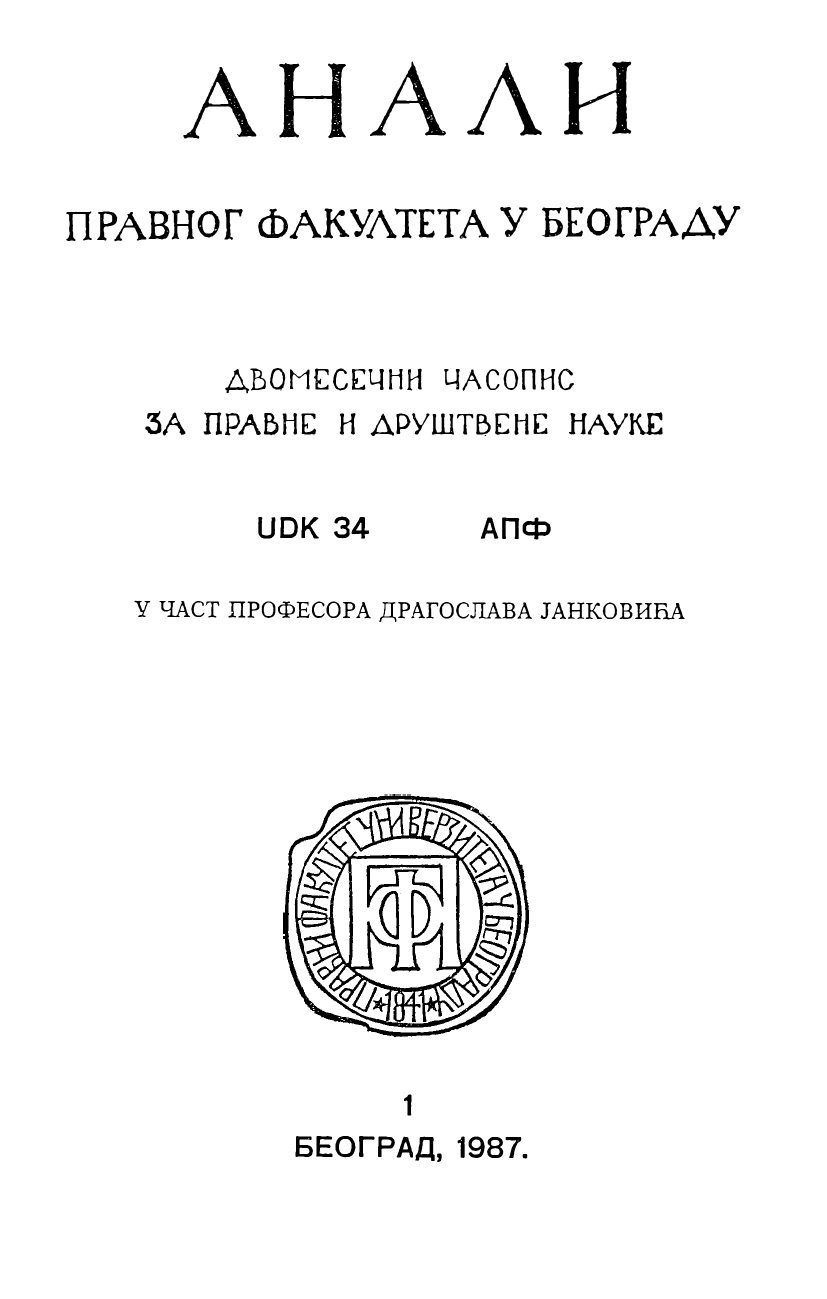PERFECTA EMPTIONE PERICULUM TRANSIT AD EMPTOREM
PERFECTA EMPTIONE PERICULUM TRANSIT AD EMPTOREM
Author(s): Dragomir StojčevićSubject(s): Law, Constitution, Jurisprudence
Published by: Правни факултет Универзитета у Београду
Summary/Abstract: This article is inspired by the doctoral dissertation of Nikola Mojovic Periculum Rei venditae since Roman to the Contemporary Law. which has been defended in 1985. In essence, the opinion of Mojović is accepted in the article that the rule of priculum est emptoris is not a consequence of interpolation effected by the members of Justinian’s commission, since it did exist already in the classic law, but the angle of considering the problem and the way of interpretation are different. Mojović’s thesis rests on the connecting the risk with the notions of vis maior and casus, as well as on the circumstance that the régime of sale has been determined by the fact that most important subject of sale have been individually determined objects (species). The author begins from the next of Justinian’s Institutions (3. 23. 3): Emptione perfecta periculum transit ad emptorem. Contrary to the majority of texts from Digesta, this one contains a general rule, while it does not solve the specific case. One can conclude out of that rule that the risk does not automatically pass to the buyer by concluding the contract. The key word here is transit, which should be connected with perfecta emptione. One could say that jurists distinguish between emptio contracta and emptio perfecta. Whenever at issue are individually determined objects (species), these two notions coincide, since by concluding a contract (emptio contracta) the sale becomes also perfecta. Then the risk is transferred to the buyer although the object is not yet handed over to him: periculum rei venditae ad emptorem pertinet tametsi ea res emptori tradita non sit. In case of all postponed and conditioned sales, the risk is not transferred to the buyer by concluding the contract, since this is the case of emptio imperfecta. The sale is perfect, as found by Seckel and Levy, when the execution depends only from the buyer. This is not a departure from the principle res périt domino. The Justinian’s Institutions set forth the rule, which is an exception from the general principle that the objects perishes at the burden of the owner. This exeption relates to the case when the subject of sale are species and when there are neither condition nor time limit. But the general rule, valid also today, reads: the risk is on the owner.
Journal: Анали Правног факултета у Београду
- Issue Year: 35/1987
- Issue No: 1
- Page Range: 106-111
- Page Count: 6
- Language: Serbian

